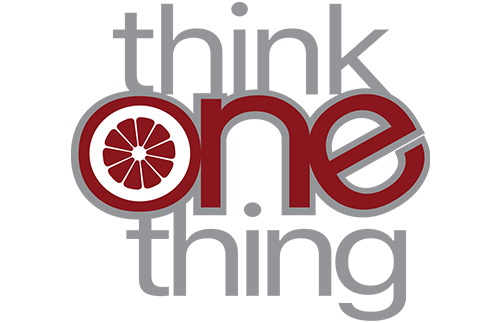Florida Bar Rules for Social Networking Sites
What are networking sites?
Over the years the internet has seen many networking sites rise and fall. Maybe you had an account on myspace or spent time chit-chatting with friends at MSN. They’re often perceived as a time-wasting medium to share cat pictures and videos of granny dancing (or better yet, maybe granny dancing with her cat). However, business relationships start with a first connection, making social media sites a fertile ground for finding new clients. Using tools like Instagram or Facebook Stories you can share with potential clients insight into how you work, who you are, and what values are important to you. If you choose to use LinkedIn, you may even share content that shows you are an expert in your field.
As a general rule, users have a “page” where they can add information they find of interest and decide how much of it will be accessible by other users. Pages can also be set to allow posting by third parties. Depending on the platform direct interaction may also be possible through direct messages and emails.
What Social Networking sites are subject to the lawyer advertising rules?

There are both personal and business pages on most networking sites. A page is considered personal if it has the sole purpose of socializing with family and friends. Lawyers are always bound by the Rules Regulating the Florida Bar Rules, even on personal pages. However, the Florida Bar Standing Committee on Advertising (SCA) advertising rules are not applicable when the social media page is purely a personal page. Of course, SCA advertising rules would apply to a personal profile page that is used for commercial purposes.
What kind of information is allowed to be on networking pages of lawyers?
If a lawyer or law firm has a business page on social media, it must comply with all of the general regulations set forth in Rules 4-7.11 through 4-7.17 and 4-7.21 of the Florida Bar’s Handbook on Lawyer Advertising and Solicitation. All the information posted must be objectively verifiable. Predictions or guarantees of results, as well as testimonials that fail to comply with the requirements listed in Rule 4-7.13(b)(8), are not allowed.
Any skills, experience, reputation, or record posted there must also be objectively verifiable. Further information can be found in the Handbook on Lawyer Advertising and Solicitation on the Florida Bar website.
Can a lawyer or law firm advertise on networking sites?
Many networking sites have an advertising feature that allows users to advertise to targeted people, based on demographics, geography, and interests.
If the target audience of a campaign is not composed of people who the lawyer has prior relationships (personal or business), the posts must further comply with all general regulations set forth in Rules 4-7.11 through 4-7.18 and 4-7.21. All advertisements must also be filed for review under Rule 4-7.19 unless they are “tombstone” advertisements, the content of which is limited to the information listed in Rule 4-7.16 or 4-7.20. There are other exemptions to the requirement for filing, as you may see here.
Depending on the target audience of the campaign (or post), it may also have to comply with the requirements for direct electronic solicitations based on a January 31, 2020, decision of The Florida Bar Board of Governor.
Posts that are targeted to people who have identified themselves with characteristics of prospective clients and are strictly displayed to them must comply with the requirements for targeted direct electronic media under Rule 4-7.18(b) and must be filed for review.
How about direct messaging?

Compliance with the regulations set forth in Rules 4-7.11 through 4-7.18 and 4-7.21 as well as additional requirements set forth in Rule 4-7.18(b) is also needed if invitations to view or link to the lawyer’s page on an unsolicited basis are sent directly to recipients who are not a current or former client, relative or otherwise has a prior professional relationship with the lawyer.
What are the rules for the lawyer’s page on networking sites?
The lawyer is only responsible for the information that he posts on his pages. Content posted by a third party is not his responsibility unless he prompts a third party to post it or uses it to circumvent the lawyer’s advertising rules.
In the case when a third-party-post on a lawyer’s page does not comply with the lawyer advertising rules, the information must be removed from the page. If the information is posted on a page that the lawyer has no control over, and he’s aware of it, the lawyer should ask the third party to remove the information. However, the lawyer is not responsible for it.
How does this apply to Twitter?
The lawyer’s page at Twitter must have access restricted to those who follow the lawyer. In this case, the information posted there is information at the request of a prospective client and is subject to the lawyer advertising rules, but is exempt from the filing requirement under Rule 4-7.20(e).
What are the rules for the lawyer’s page on networking sites?
A page on a networking site, as well as a website of a lawyer or law firm, is not required to be filed with The Florida Bar for review. But, any banner advertisement posted by a lawyer on a social networking site is subject not only to the requirements of Rules 4-7.11 through 4-7.18 and 4-7.21 but also must be filed for review unless the content of the advertisement is limited to the safe harbor (tombstone) information listed in Rule 4-7.16. See Rules 4-7.19 and 4-7.20(a).
Summary
Social Media sites are an important means to communicate with potential clients and stay in touch with past business clients. Utilized correctly, these sites can help law firms build credibility, increase brand awareness, and attract new clients. Law firms need to have someone familiar with the specific rules and regulations in the Florida Bar’s Handbook of Lawyer Advertising and Solicitation in order to implement a compliant and successful social media campaign.



